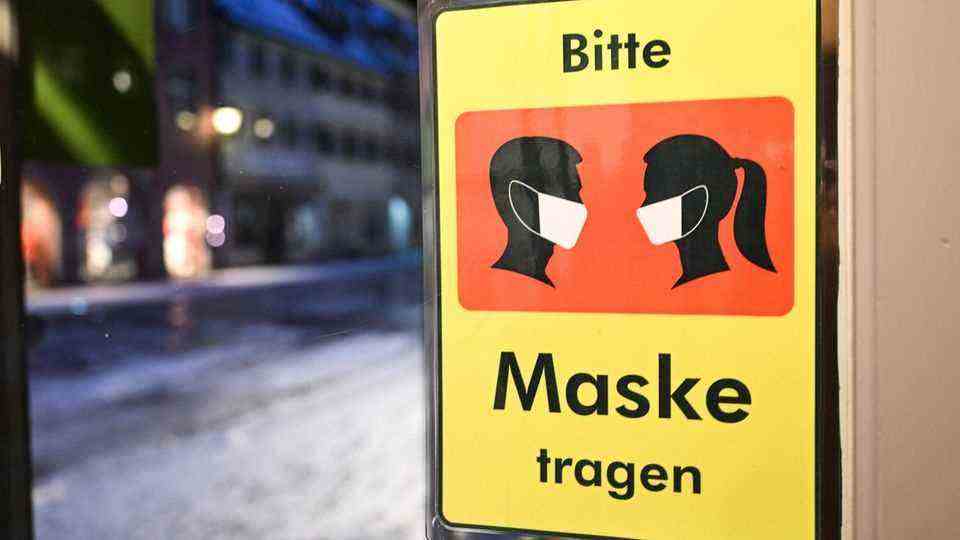Will Corona be over soon?
WHO calls the end of the pandemic in Europe “plausible” after the omicron wave
Can the corona pandemic end this year? The WHO sees this as possible.
© Fabrice COFFRINI / AFP
When will Corona finally be over? According to the World Health Organization (WHO), at least in Europe, this could soon be the case. The WHO boss also says: The acute phase of the pandemic can be ended worldwide this year.
Many of us long for an end to the corona pandemic. Optimistic news comes from the World Health Organization (WHO). This does not rule out an end to the corona pandemic in Europe after the current omicron wave. “It is plausible that the region is moving towards an end phase of the pandemic,” WHO Europe chief Hans Kluge told the AFP news agency on Sunday. At the same time, however, he warned of caution because of possible further mutations in the corona virus.
Kluge explained that when the current omicron wave in Europe has subsided, there will be “global immunity for a few weeks and months, either thanks to vaccination or because people have immunity because of an infection”. In addition, there are seasonal effects, added the WHO representative with a view to the upcoming spring and summer.
“So we are preparing for the fact that there will be a period of calm before Covid-19 could come back towards the end of the year, but the pandemic is not necessarily coming back,” Kluge summarized his expectations.
Pandemic end with “international tour de force” this year
According to WHO estimates, 60 percent of all people in Greater Europe could have been infected with the omicron variant by March. WHO Europe, based in Copenhagen, is responsible for 53 countries and territories not only in Europe but also in Central Asia.
WHO chief Tedros Adhanom Ghebreyesus was also optimistic. In his view, the acute phase of the corona pandemic could be ended this year with an international effort. Among other things, the vaccination gaps in poorer countries would have to be closed and more testing would have to be carried out, Tedros said on Monday at a meeting of the WHO Executive Board in Geneva. At the same time, he warned against hasty optimism. “It would be dangerous to assume that Omicron was the last variant and that we are already in the final stages.”
Because of the rapid spread of the omicron variant of the coronavirus, 100 new cases from around the world were reported to the WHO every three seconds last week, and one death was added every 12 seconds, Tedros reported.
The omicron wave is rising and rising – this is the corona situation in Europe
17 images
“Can end Covid-19 as a global emergency situation”
However, the head of the UN health organization also had good news for the steering committee of health ministers and high-ranking officials from 34 countries: the vaccine shortage had been overcome. The logistical challenge now is to bring the doses to all countries and administer them there.
According to Tedros, 85 percent of people in Africa have not yet received a vaccination. Only if 70 percent of the population in each country were vaccinated in the coming months could the virus be defeated, Tedros said. Treatment options also need to be improved to reduce mortality. “We can end Covid-19 as a global emergency, and we can do it this year,” Tedros said.
WHO Europe chief: “Have to be very careful”
Omicron is highly contagious, but according to previous studies, it usually causes diseases with a milder course than earlier virus variants. Currently, Omicron is the dominant variant in the European Union. This also applies to Germany. A good two years after the start of the corona pandemic, during the current omicron wave, there is increasing hope that corona will develop from a pandemic into an endemic infection, which, like the flu, will persist and accumulate in a limited region or in parts of the world population occurs.
WHO Europe chief Kluge told AFP: “There is a lot of talk about an endemic, but endemic means (…) that it is possible to predict what will happen.” The Sars-CoV-2 coronavirus “surprised us more than once, so we have to be very careful”.

Regarding the currently sensible strategy against Corona, Kluge said that instead of concentrating on limiting the contagion, the focus should currently be on protecting particularly vulnerable people. The situation must be stabilized so “that the health system is no longer overwhelmed by Covid-19 and can continue basic health care, which unfortunately has been interrupted for cancer, cardiovascular diseases and routine vaccinations”.
When asked whether a fourth dose of vaccine was necessary to end the corona pandemic, Kluge reacted cautiously. At least it is certain “that immunity increases after each dose of vaccination,” he told AFP.

